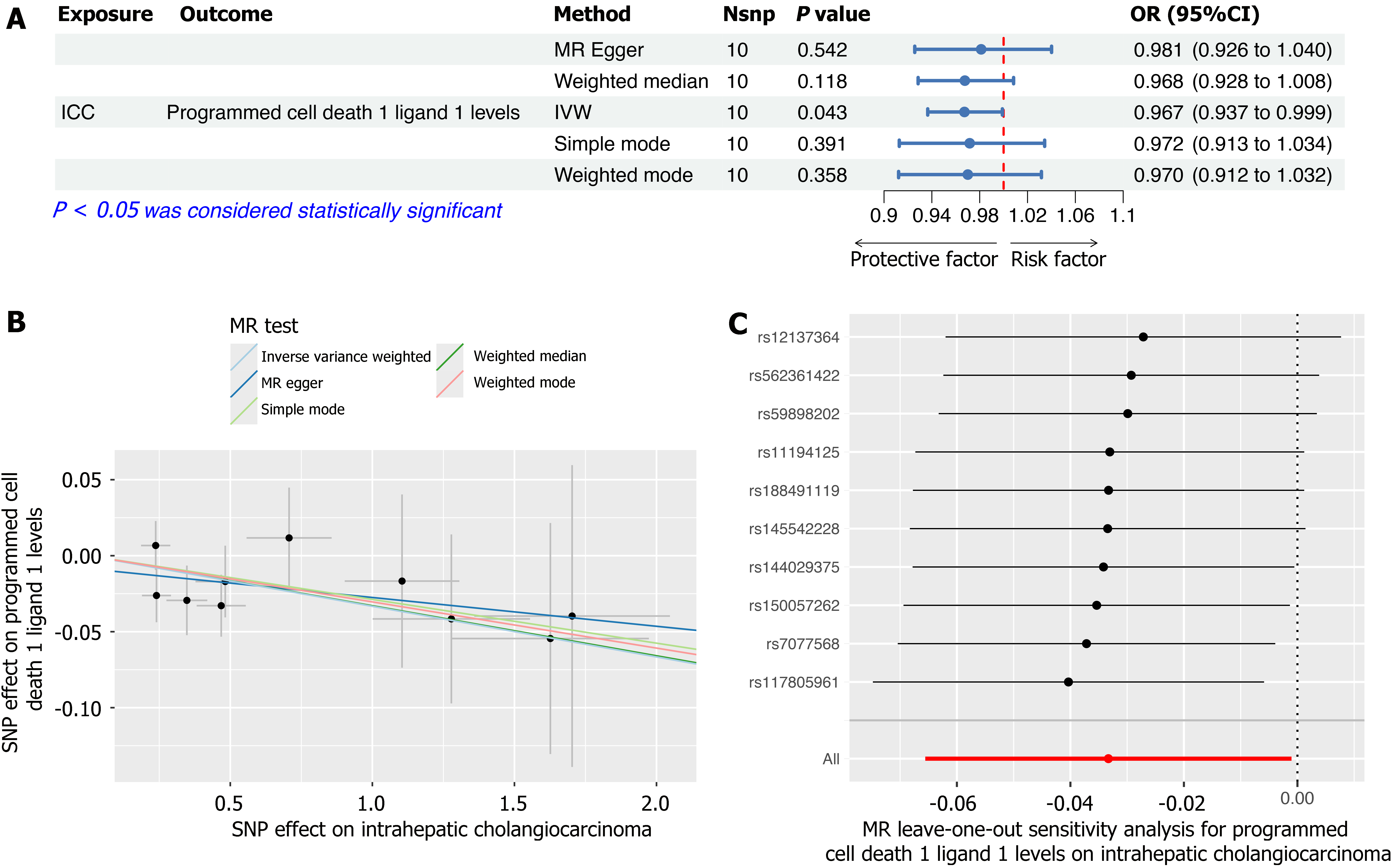Copyright
©The Author(s) 2025.
World J Gastrointest Oncol. Jul 15, 2025; 17(7): 108455
Published online Jul 15, 2025. doi: 10.4251/wjgo.v17.i7.108455
Published online Jul 15, 2025. doi: 10.4251/wjgo.v17.i7.108455
Figure 4 Results of reverse Mendelian randomization analysis examining intrahepatic cholangiocarcinoma as the exposure and specific inflammatory factors as the outcomes.
A: A forest plot displays the significant causal effects of intrahepatic cholangiocarcinoma (ICC) on programmed cell death 1 ligand 1 levels; B: Scatter plots were employed to illustrate the causal relationship between ICC and programmed cell death ligand 1 levels, using five different Mendelian randomization methods; C: Forest plots from "leave-one-out" sensitivity analyses, illustrating the influence of individual single nucleotide polymorphisms on the overall results. ICC: Intrahepatic cholangiocarcinoma; MR: Mendelian randomization; IVW: Inverse-Variance weighted method; OR: Odds ratio; SNPs: Single nucleotide polymorphisms; Nsnp: Number of SNPs.
- Citation: Chen B, Chen J, Chen ZT, Feng ZP, Lv HB, Jiang GP. Genetic evidence for the causal influence of inflammatory factors on intrahepatic cholangiocarcinoma risk. World J Gastrointest Oncol 2025; 17(7): 108455
- URL: https://www.wjgnet.com/1948-5204/full/v17/i7/108455.htm
- DOI: https://dx.doi.org/10.4251/wjgo.v17.i7.108455









